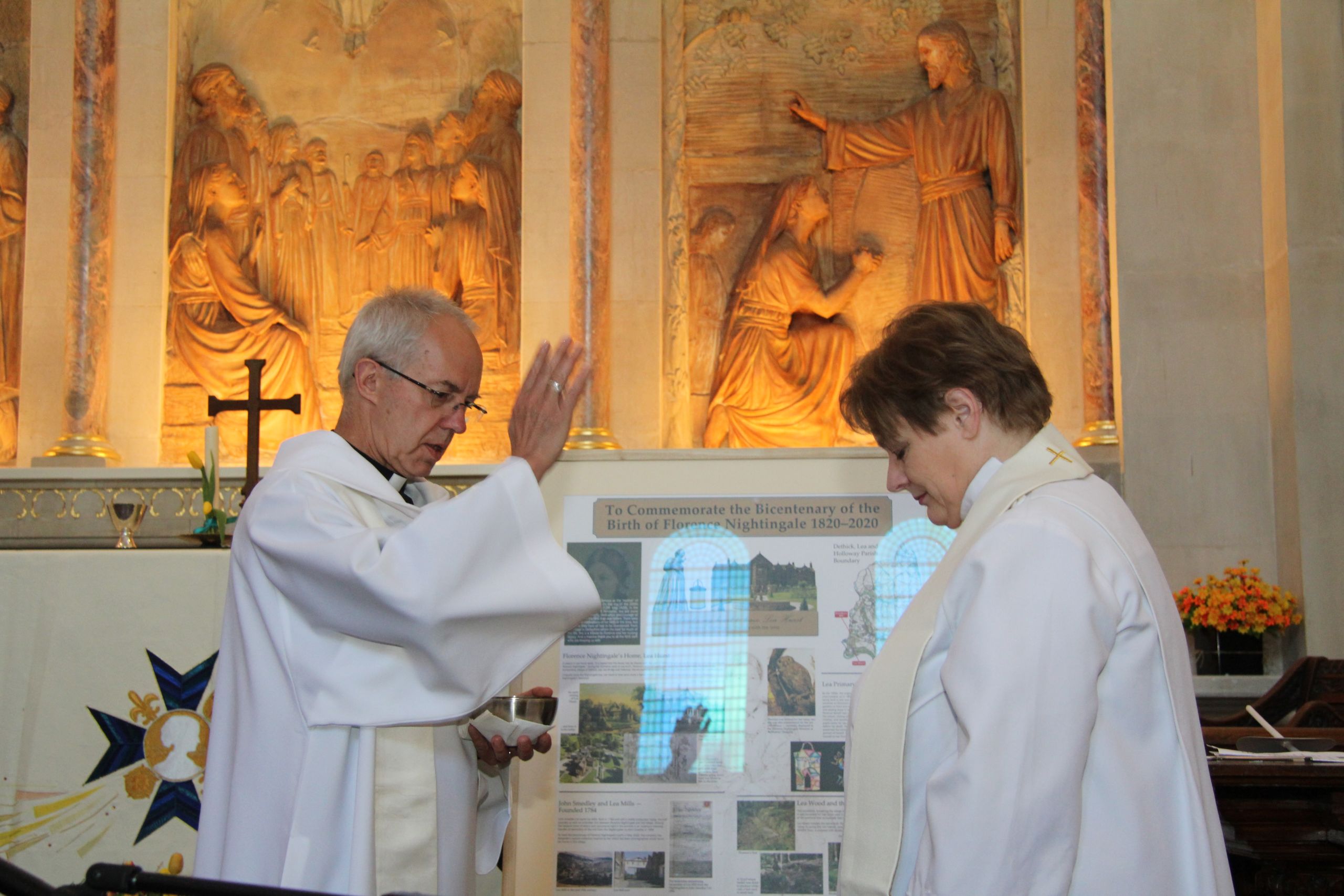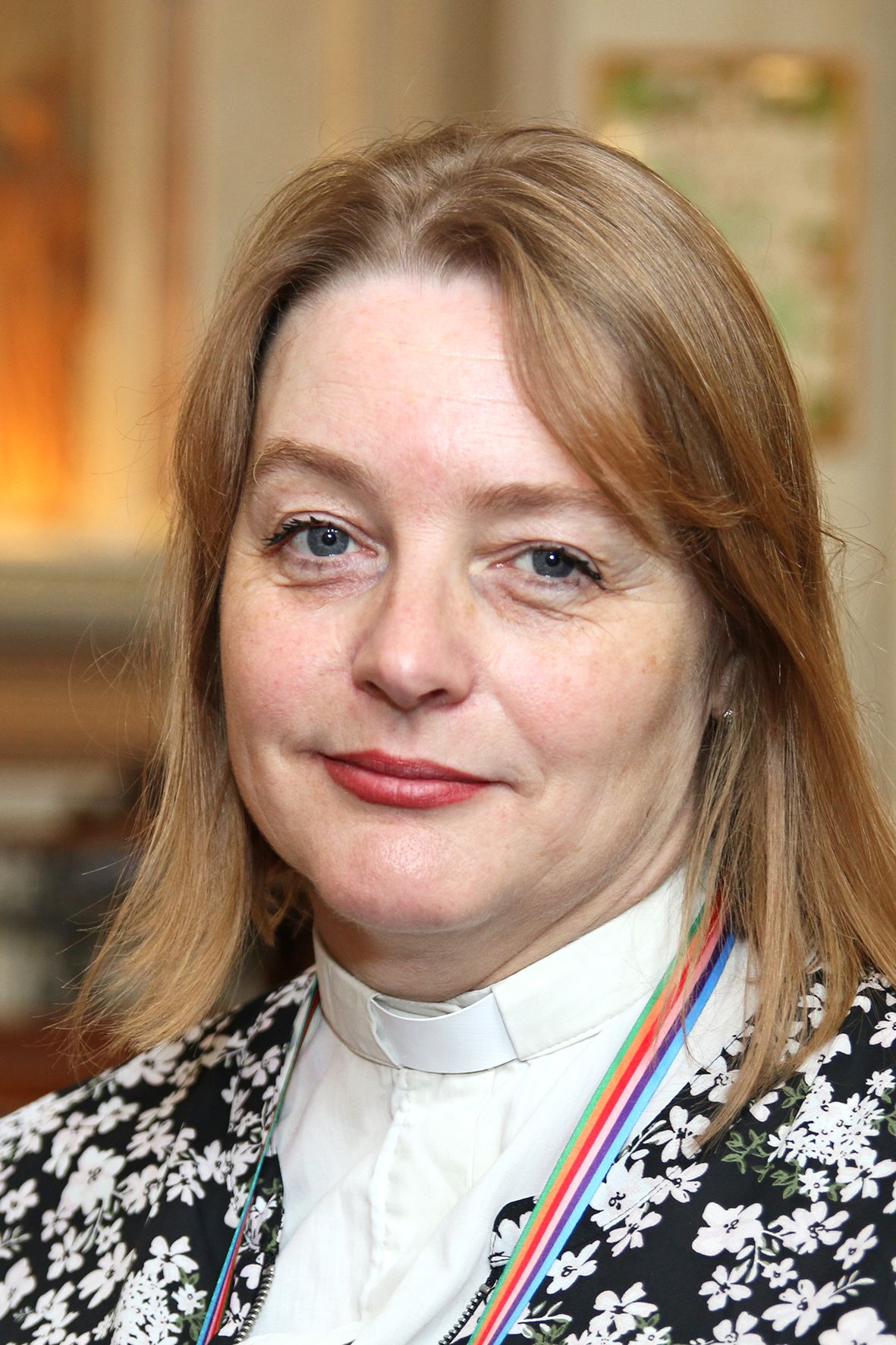Mia's story

Reverend Mia Hilborn
Head of Spiritual Care
“At the start of the crisis we put out a call for experienced chaplains. The Archbishop of Canterbury, Justin Welby, got in touch."
“There is one incident that sticks in my mind. At the start of the crisis we put out a call for experienced chaplains. The Archbishop of Canterbury, Justin Welby, got in touch – though I am not sure whether he saw our appeal or spontaneously offered. He provided staff with the key to the Lambeth Palace Garden to give them somewhere to relax. It is lovely and across the road from the hospital. And he came in once a week, helping distribute food, blessing babies and giving comfort to patients in intensive care.
There was one patient, a profoundly mentally and physically disabled man, who was very seriously ill with COVID-19. He was barely alive. We had been contacted by the home where he lived and told he liked to go to church. I took the Archbishop to see him and we prayed by his bed. He was in an ordinary ward, and was not receiving oxygen because everyone expected him to die soon. They were just keeping him comfortable. But to everyone’s astonishment he recovered and went home.
He had beautiful nursing and spiritual care – that’s what I put his recovery down to.
We have 150 chaplaincy team members serving the major faiths and beliefs and we can call on many more. The first few days of lockdown felt similar to those after a terrorist bombing or stabbing – everyone was a bit frightened, no one was walking about.
“When a chaplain is seen on the wards during a crisis, it brings a sense of calm.”
Then patients started dying and the Trust underwent massive change with wards opening and closing. I have been here 20 years and I have never seen anything like it. We were standing on shifting sands. We spent a month in a state of complete uncertainty.
The wards were so busy and different. Sometimes the staff forgot about spiritual care, which was a pity. We would go and see anyone who asked, or if a family member or nurse asked.
When a chaplain is seen on the wards during a crisis it brings a sense of calm – that things are going to be OK. Conducting religious services is 10% of my job. Mostly I comfort patients and their families and staff. Yes, I am a shoulder to cry on – I have very damp shoulders.
When someone is dying, staff will always ensure at least one family member can come in to say goodbye. But relatives couldn’t come in because of COVID-19. Staff tried so hard to be kind. They kept in touch with relatives by phone, video and email. This hospital has always had a very strong compassionate ethos. Ipads are everywhere now and patients can speak to their relatives anytime. That will be one good legacy to come out of this.
As a member of the ethics committee, I was involved in many complex discussions including about ECMO (Extra Corporeal Membrane Oxygenation – when patients are put on a machine that takes over their circulation and oxygenates the blood bypassing the lungs giving them a chance to recover). For every ECMO bed we had many patients who could have taken it, so for the clinical teams it was about choosing the patients with the best chance of a good outcome from the treatment.
More staff sought our help during the crisis. They tend to sidle up and ask for help as you walk around. A nurse said to me she was utterly drained and exhausted but didn’t want to offload on her partner when she went home because he didn’t understand. Staff couldn’t go out for a coffee or a drink to unwind with colleagues. Those redeployed found themselves working with people they didn’t know – teams were ripped apart. And for some transferred from outpatients to wards where patients were dying – they were shocked.
“On one occasion we went to a crematorium in south London and did 12 funerals in a row with no family there. They felt it was too dangerous to come.”
For Muslim staff it was Ramadan during lockdown. We had guidance from the Muslim Council of Great Britain with timetables for eating and sleeping and we had Koran cubes – little radios which individuals could programme to recite verses from the Koran and which could be wiped clean after use. They were great -– we put them all over the hospital.
For critical care staff unable to come out of the ICU and pray we had guidance giving them permission when to fast, when to pray and when not. That was helpful.
On one occasion we went to a crematorium in south London and did 12 funerals in a row with no family there. They felt it was too dangerous to come. A lot of people who died didn’t have a family member willing or able to arrange a funeral. I also conducted a couple of weddings for staff – one went viral.
A doctor and nurse from St Thomas’ who had to cancel their wedding due to the #coronavirus outbreak have got married in the hospital’s historical chapel.
— Guy's and St Thomas' (@GSTTnhs) May 26, 2020
Read about Jann and Annalan’s special day and why it meant so much to them to tie the knot at work https://t.co/ECH4nJuBSo pic.twitter.com/tz6T0jj2Bi
Jann and Annalan were married by Mia in the hospital chapel
I had to stay in a hotel during the crisis because my daughter, 24, was diagnosed with leukaemia on New Year’s Eve. She got COVID-19 but fortunately it was mild. I had a test and I was negative – I am so glad it wasn’t me that gave it to her. I took 2 months off after Christmas to look after her and then came back to this.
I have never seen the hospital work so hard for so long. The staff truly did care. Of course we could have done better – everyone of us could have done better.”

Read more stories

